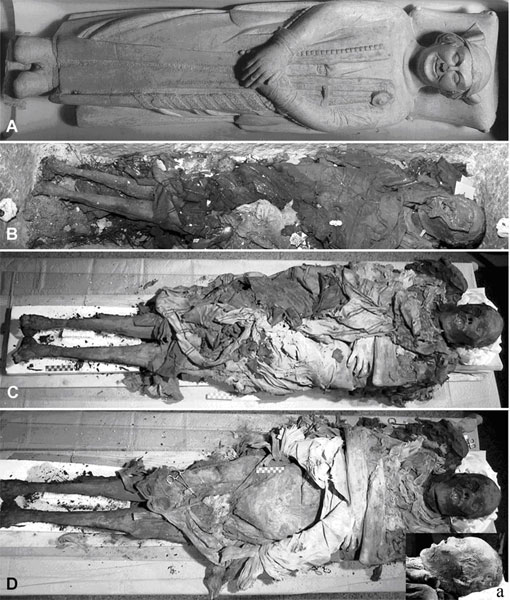One of history’s greatest murder mysteries—the sudden, inexplicable death of a powerful warlord—remained unsolved for centuries. What was it that finally cracked the case? Archaeology, feces, and centuries of waiting.
Can Francesco della Scala (1291-1329), more commonly known as “Cangrande,” was born into the immensely powerful della Scala family, a majorly influential political force in 13th and 14th century Verona, Italy. He was a feared warlord, friend and host to Dante Alighieri (author of the world-renowned Divine Comedy), and soon rose to become the most influential man in all of Verona.
Della Scala then won control over Treviso, Italy: this was a massive military accomplishment, and the “last act in Cangrande’s long struggle to control the entire region of Veneto in northern Italy,” (Discovery). Immediately after this momentous success, he fell terribly sick and died at the young age of 38. Why?
The official cause of death was due to a polluted spring that Cangrande seemingly drank from, but rumors of his being poisoned began to spread. The entire ordeal was a mystery, and remained that way for centuries; in fact, it wasn’t until very recently, when his body was found by a team of archaeologists in 2004, that the pieces began to fall into place.

Tomb of Cangrande
The role of archaeology in uncovering mysteries such as the murder of Cangrande is absolutely integral—by looking at stomach contents, fecal material, and tooth decay, archaeologists are capable of turning centuries-old rumors into a historical narrative that we can learn from today.
Upon closer examination of the great Cangrande’s body, signs of arthritis, recently regurgitated food, tuberculosis, and potential cirrhosis were discovered, but nothing pointing to his mysterious death was found—until the team began to look at what he most recently consumed before his sudden demise.

Timeline of Autopsy: a.) Stone cover of the sarcophagus b.) Body upon immediately opening stone cover c.) Body wrapped in burial clothing d.) Body at beginning of autopsy
Samples of feces were taken, and analyses showed the presence of chamomile, mulberry, and foxglove, also referred to as Digitalis. Foxglove can cause “gastrointestinal distress, drooling, and…seizures,” and is highly lethal in larger doses (Smithsonian).
Archaeologists were then able to deduce that Cangrande must have been given a deadly amount of foxglove, most likely disguised in a chamomile tea. It is highly likely that this was done to suppress the warlord’s rising and seemingly unstoppable power in Verona and northern Italy. Whether it was done by a political or personal enemy, it isn’t clear—this may be the next age-old mystery for archaeologists to crack.
Sources and Further Reading:
Cangrande Biography by Brown University
700-Year-Old Murder Mystery by Discovery

Archaeology reminds us that the history we think we know is the story that powerful people decided we should know. We can research a topic through newspapers and government reports and never see the dissenting viewpoint or minority experience. The case of Cangrade reminds us that there are also multiple viewpoints among the seemingly powerful.
Archaeology plays a huge role in uncovering old information about aspects of global history. Dispelling rumors and myths is part of the discipline. It also encourages us to question the information we have been taught to know as true. This is why artifacts and context are so valuable during an excavation of a site. There is always a chance of making a discovery that could completely alter our perspectives about historical incidents and people.
Because the powerful have often written biased versions of history, archaeology becomes a means to speak for the silenced people of the past. As Cangrande’s murder was covered up for centuries, much of history has been obscured as well, which is why it is so important for us to question and actively seek out the truth. For instance, groups like the Urban Archaeology Corps encourages young archaeologists to become a part of this process. Two members of this program discovered proof of emancipation before the Emancipation Proclamation was established, something that has slipped under the radar of history. By questioning the history we have been given, we form a more accurate and representative picture of our past.
http://www.npr.org/2015/09/05/437768166/teens-dig-into-black-history-as-urban-archeologists